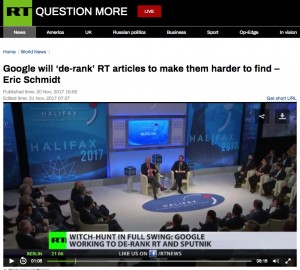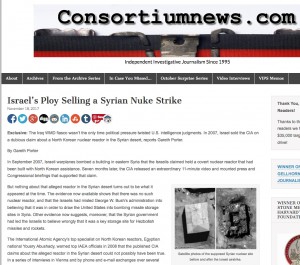Author Archive
TFF PressInfo # 436: The Prince of human rights got it all wrong and we are still waiting
By Jan Oberg
General Ratko Mladic has finally been sentenced – to life – for crimes committed in Bosnia during the Yugoslav dissolution wars in the 1990s.
That motivated Prince Zeid Ra’ad Al Hussein, the UN High Commissioner for Human Rights, to make a statement to the effect that “Mladic is the epitome of evil, and the prosecution of Mladic is the epitome of what international justice is all about.”
But that statement is, if anything, the epitome of exemplary nonsense, pro-Muslim bias and something the UN S-G ought to distance himself from since it is a purely political statement.
The media – in the West in particular – have of course lapped it up. Most media people today are too young to have any personal experience of the events some 25 years ago and would have to read thick books to understand some of it.
The verdict’s political effect – whether intended or not – is to justify the horrible way the so-called “international community” intervened in the Yugoslav complex of intertwined conflicts with an inverse proportion between its intellectual understanding and its brutality.
Now, if you think I am thereby defending Mr. Mladic, let me say that there are strong reasons to believe that he is guilty of much including some of the killings in the massacre of Srebrenica.
Essentially, the argument of this article is not about Mladic. It’s about the Zeid Ra’ad Al Hussein’s unacceptably politicized – but hopefully well-intentioned – statement.
But the Jordanian prince – who was with UNPROFOR in Yugoslavia at the time and should know better – anyhow got it all wrong because:
• The human evil card is a cheap one to play that doesn’t explain anything. Any serious intellectual knows that there are very complex economic, political, historical and other factors associated with crimes of this type. What happened in Srebrenica can’t be reduced to one man’s evil as little as the Second World War can be reduced to the single person Hitler.
• What made Srebrenica happen was, among other things, that the six safe zones the UN Security Council had established was never made safe by the UN members. Then UNPROFOR top General Wahlgren of Sweden whom I knew very well had required around 30.000 more UN troops to make those zones safe for refugees to be in; the international community gave him only 1200 Turks with a Turkey firmly sympathising with the fundamentalist Muslim leadership in Bosnia under Alija Izetbegovic.
• Interestingly, the safe zones were not de-militarised. The international community – the US? – had permitted Izetbegovic’s government to place its ammunition depots and troops inside these zones – from which they could then make excursion out and fire into Serbian villages while Serbs obviously could not fire into safe zones filled with refugees.
• In addition, the UN as such was bankrupt at the time – member states such as the US having ignored to pay its dues to the organisation. Read the rest of this entry »
Ina Curic’s CV
Ina Curic became a TFF Associate in April 2006, TFF’s project coordinator in Burundi in May 2007 and a member of the foundation’s Board in March 2008.
Romanian-born Ina Curic is a trained sociologist, with a M.A. in Gender Studies from Babes-Bolyai University, Romania and a M.A. in Peace and Conflict Studies from the European Peace University, Austria.
She has a solid background in peace and conflict research, gender studies and NGO management and more than ten years work experience in civil society organizations in different countries.
Since 1999, Ina has provided numerous national and international training programmes and workshops on different topics related to organizational development, project management, peace, conflict and gender related issues in various settings: Romania, Bosnia & Hertzegovina, Croatia, Turkey. Her field experience with training, capacity building as well as gender and peace projects in post war and conflict areas extends to Former Yugoslavia, Iraq, and Burundi.
International organizations for which she has provided training and consultancy include UN World Food Programme, International Medical Corps, Norwegian Council for Refugees. Read the rest of this entry »
What makes Google’s Eric Schmidt so afraid? And what should he be afraid of?
By Jan Oberg
OK, it’s from Russia Today so you should of course not trust it but somehow this video and text and the man in it seems quite factual, not fake and obviously not omitted.
It documents that Eric Emerson Schmidt, the Executive Chairman of Alphabet – an American multinational conglomerate that owns a lot and among them Google – is working on “de-ranking” alleged propaganda outlets such as Russia Today, RT – the world’s third largest television network – and Sputnik.
Who is Eric Schmidt?
On the Wikipedia link you can read more about Mr. Schmidt, one of the richest person on earth, an advocate of net neutrality, a corporate manager and owner of a lot, a collector of modern art, etc. And you can read about his heavy involvement with Hillary Clinton’s recent campaign and the Obama administration and about Schmidt’s involvement with Pentagon, too.
Eric Emerson Schmidt’s name is associated with the world’s largest and most systematic data collecting search engine, Google, that millions upon millions use. School children, teachers, parents, media people, politicians and you and I all daily “google” what we need to know.
While we do that, Google tracks everything about us and if you are searching for a thing to buy, say a camera, be sure that camera ads will shortly after turn up on your screen. And they know everything we are interested in through our “googling” including political interests and hobbies.
Playing God
This very powerful corporate leader with a open political orientation has decided Read the rest of this entry »
Israel’s Ploy Selling a Syrian Nuke Strike
By Gareth Porter
In September 2007, Israeli warplanes bombed a building in eastern Syria that the Israelis claimed held a covert nuclear reactor that had been built with North Korean assistance. Seven months later, the CIA released an extraordinary 11-minute video and mounted press and Congressional briefings that supported that claim.
But nothing about that alleged reactor in the Syrian desert turns out to be what it appeared at the time. The evidence now available shows that there was no such nuclear reactor, and that the Israelis had misled George W. Bush’s administration into believing that it was in order to draw the United States into bombing missile storage sites in Syria. Other evidence now suggests, moreover, that the Syrian government had led the Israelis to believe wrongly that it was a key storage site for Hezbollah missiles and rockets.
Continue reading Porter’s investigative report at ConsortiumNews.com
Trump in Philippines: Are human rights deteriorating?
By Jonathan Power
November 14th 2017
When Donald Trump stretched his hand across our television screens on Sunday to shake the hand of the Philippines’ president, Rodrigo Duterte, and then said he had “a great relationship” with him I felt my gorge contracting.
Having tasted the great, if sometimes flawed, (remember the totally counterproductive policy of arming the Afghani mujahedeen against the Soviet invaders) campaign of another US president, Jimmy Carter, to put human rights at the centre of American foreign, to see this bald regression is a bitter fruit to swallow.
Duterte recently boasted that he personally killed a man in a fight when he was 16. During his presidential campaign he darkly hinted at other killings he had made and since then has waged a no-hands-barred fight against suspected drug dealers.
Arrests, courts, justice? Forget it.
But then under President Donald Trump we have seen presidential support, as we did under President George W. Bush, for torture. (President Barack Obama reversed the Bush policy.) Read the rest of this entry »
Zionism’s undoing – the aftermath of the Balfour Declaration
By Jonathan Power
November 7, 2017
Even former US president Jimmy Carter who single handily (without much Jewish appreciation) did more to make Israel secure than any other living person confesses neither he nor anyone can change the march of demographics.
Within the boundaries of the Holy Land there are just over 6 million Jews and 6 million Palestinians. The Palestinian birth rate is almost three times that of the Israeli Jews. If anything the Jewish population is starting to fall as an increasing number of Jews decide that Israel has no future for them and emigrate.
Another former US president, Richard Nixon, when asked by Patrick Buchanan how he saw the future of Israel, turned down his thumb “like a Roman emperor at the gladiators’ arena”.
Perhaps we are witnessing the death of Israel by a thousand cuts, the friction of conflict and the attrition of population. Read the rest of this entry »
PI 435 Likely: Nuclear Use Within Months (Part 2) – How to avoid it and build peace with Korea?
By Jan Oberg*
Fact is that we are dealing here with a conflict that is the most threatening to humankind’s survival and it would be rather more easy to solve than most other conflicts.
This has recently been pointed out by TFF Board Member and former Co-President of International Physicians for the Prevention of Nuclear War, IPPNW, 2004-2008, Gunnar Westberg, in a short analysis.
How?
• The West – the EU or NATO, if not the US itself – takes a serious mediation initiative. As long as people talk, they don’t start wars. That in itself would de-escalate the tensions and risks in sharp contrast to continued tit-for-tat sandbox thinking and reckless statements, last by defence secretary Mad Dog Mattis at the border between the North and South.
• The vastly superior side stops every military activity in the waters close to the North while South Korea’s leadership take up contact with the leadership of the North.
• The type of provisions of Jimmy Carter’s old deal with the North Koreans are dusted off and used as inspiration for more: Give the North Koreans all the economic assistance they believe they need and give them civilian energy technology too – as a quid-pro-quo for very tight IAEA inspections and a written guarantee that it will not acquire nuclear weapons as long as the West keeps its side of such a deal. (President George W. Bush just destroyed that deal and thought it appropriate to include North Korea in his Axis Of Evil speech).
• Sign a non-aggression or non-attack pact between North and South Korea and between North Korea and the US. That is, undermine any fears the North Koreans may have. The overwhelming superiority of the adversaries of the North implies that such a pact would be risk-free to write and sign.
• Let North and South Korea freely decide if they want to unify. They have a perfect human and international legal right to do so, it’s nobody’s business but the Korean people’s. The world should assist them in doing so if they want.
• The US and North Korea sign a peace treaty (what exists today is only the 1953 ceasefire agreement). Read the rest of this entry »
TFF PressInfo # 434: Nuclear weapons use within months – Part 1: Why?
By Jan Oberg*
That’s what I hold quite likely in case the present US administration under Donald Trump’s formal leadership continues down the path its in-fighting militarist fractions seem to have chosen.
We’re in the worst, most dangerous situation since the Cuban Missile Crisis. Sitting down and hoping for the best is neither responsible nor viable or wise.
I can only hope that I will be proved wrong. That the present extremely dangerous tension-building will die down by some kind of unforeseen events or attention being directed elsewhere.
The world could quite well be drifting toward what Albert Einstein called ’unparalleled catastrophe’. It’s something we may – or may not – know more about when President Trump returns from his trip to Japan, South Korea, China, Vietnam (APEC where he also likely to meet Russian President Putin) and the Philippines.
Except for 93-year old Jimmy Carter offering to go to North Korea, we witness nobody taking any mediation initiative – not the UN’ S-G Guterres, not the EU, not European NATO countries, not BRICS, not single countries like Sweden, not… well, you name them.
It’s about denial, about heads deep down in the sand, people hoping for the best at the moment when humanity’s future is in the hands of a couple of leaders from whom they would probably not buy a used bicycle.
That this silence all around is a roaring fact, is about as tragic and dangerous as the situation itself. Read the rest of this entry »
TFF PressInfo # 433: Balfour Declaration – 100 years today
Three articles reaching 9000+ recipients around the world on a day that has been mentioned by few Western mainstream media. And while sending, PMs May and Netanyahu celebrate the Anniversary in London.
The One and Only Path to Palestine/Israel Sustainable Peace
By Richard Falk
Prefatory Note
This post is a slightly modified version of my presentation to the Human Rights Commission of the Italian Parliament on October 11, 2017. The Commission is composed of members of Parliament and chaired by Hon. Pia Elda Locatelli, representing the city of Bergamo. The presentation was followed by a discussion, and a generally favourable response on the central issue of switching from an emphasis on ‘occupation’ to ‘apartheid.’
An Overview of Present Realities
We meet at a difficult time from the perspective of the Palestinian people: several developments nationally, regionally, and internationally now deprive Palestinians of that glimmer of hope that comes from seeing light at the end of the tunnel; more fully appraised, the situation is not as bleak for Palestinians as the picture of their struggle being painted from a realistic perspective.
A series of factors pointing in both directions can be identified, first to highlight the negative developments from a Palestinian perspective, and then to set forth several developments that are positive with regard to the Palestinian national movement aiming for decades to achieve a just and sustainable peace.
(1) The foreign policy priorities of regional and international political actors have increasingly shifted attention away from the Palestinian ordeal; developments internal to Israel have deliberately accentuated this inattention to Palestinian goals and rights; of special relevance in these regards are the ongoing wars and turmoil in Syria, Yemen, Libya, and Iraq, as well as deteriorating relations and rising tensions of the Iran/US relationship.
Further, there are the moves toward normalization of relations with Israel by the Gulf countries, especially Saudi Arabia; and the unsteady diplomatic approach of the Trump presidency that seems accurately interpreted as supportive of whatever the Israeli government chooses to do, including even accelerated settlement expansion and a rejection of the Palestinian right of self-determination.
(2) Israel and Zionist support groups have launched a variety of initiatives designed to convince the Palestinians that they have been defeated, that their struggle is essentially futile at this stage, and they should move on for their own sake, overtly renouncing their struggle and posture of resistance.
The pro-Zionist Middle East Forum, founded by Daniel Pipes has even sponsored a so-called ‘victory caucus’ that basically proclaims an Israeli victory as a way of demoralizing Palestinian activism and global solidarity efforts by treating Palestinian goals as a lost cause. Read the rest of this entry »







